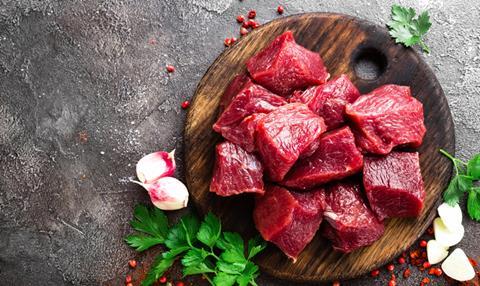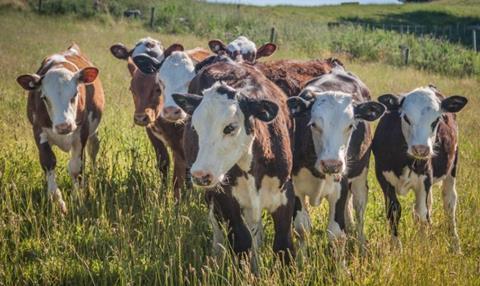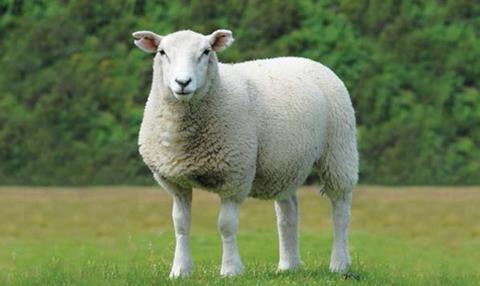[IN-DEPTH READ]
Trade bodies across the UK and Irish meat industries have responded to a study published in the journal Nature Food on the impact of diets - including meat eating - on the environment.

A paper published in Nature Food entitled ‘Vegans, vegetarians, fish-eaters and meat-eaters in the UK show discrepant environmental impacts’ argued that dietary shifts away from animal-based foods “can make a substantial contribution to reduction of the UK environmental footprint”.
It claimed that uncertainty due to region of origin and methods of food production do not obscure the marked differences between the studied diet groups and should not be a barrier to policy action aimed at reducing animal-based food consumption.
The study is based on dietary data from a sample of 55,504 vegans, vegetarians, fish-eaters and meat-eaters, which the authors of the paper link with data on greenhouse gas emissions, land use, water use, eutrophication risk and potential biodiversity loss from a review of 570 life-cycle assessments covering more than 38,000 farms in 119 countries.
According to the authors, the data showed that:
- dietary CO2 emissions for vegans were 30.3% of the high meat-eaters group
- there were substantial differences in dietary CO2 emissions between groups of meat-eaters: dietary CO2 emissions of low meat-eaters were 57.2% of the high meat-eaters
- emissions of CH4, a GHG that is predominantly associated with production of ruminants, from high meat-eaters were 15.3 times higher than from vegan diets
- N2O emissions, which are predominantly associated with fertilizer use, for high meat-eaters were 3.6 times higher than for vegans.
Ultimately, the paper concluded that despite substantial variation due to where and how food is produced, the relationship between environmental impact and animal-based food consumption “is clear and should prompt the reduction of the latter.”
Focusing on a minority of meat eaters
Much of the analysis throughout the paper relies on comparisons between the impact of ‘vegan’ and ‘high meat eater’ diets. This is evidenced in the statistics above and in claims such as “the biodiversity impact of vegetarian diets is estimated to be 64.8% of high meat-eaters.”
It is worth noting that the vast majority of those study participants categorised as ‘meat eaters’ do not actually fall into the ‘high meat’ category. Of the total 29,589 participants classified as ‘meat eaters’, 72% of them were subclassified as either ‘low’ or ‘medium’. In the wider context of the study’s total participants, ‘high meat eaters’ ultimately made up a 14.9% minority group.
It could therefore be argued that the paper’s analysis relies significantly on the assessed impacts of the diets of a minority of ‘meat eaters.’
Provision Trade Federation (PTF) director general Rod Addy expressed concern about the underpinning data on which the paper is based, stating that it was “not new” and originally published five years ago.
He added: “When published, the mainstream media also misrepresented it as arguing for avoiding meat and dairy consumption altogether, when the paper it was part of was instead calling for more balanced diets."

Questions over the methodology used
Meat industry commentators have voiced unease about the metrics and methodologies employed by the study. A spokesperson for the BMPA said that the report on meat consumption has generated “more questions than answers on first inspection.”
BMPA said that it is consulting with independent scientific advisors, who are conducting an in-depth review of the assumptions and findings, especially the assertion that soil carbon storage and sequestration only have a ‘modest impact’ on livestock’s overall footprint.
It said: “We’ve also asked our scientific advisors to consider how this has been reported in the media, particularly the comparison with car emissions and the references to how much carbon dioxide different types of diets produce per person.
“As has been demonstrated by another team of Oxford scientists, conflating methane (produced by ruminants) and carbon dioxide (from burning fossil fuels) is misleading and a less accurate measure of environmental impact.”
The Agriculture and Horticulture Development Board (AHDB) echoed these sentiments when, commenting on the Nature Food study, it said: “The authors [of the study] state that the impact of carbon dioxide absorbed by livestock farming is ‘modest’, yet experts in this field are united in the fact that no farm level data currently exists to demonstrate the rate of carbon dioxide absorbed by livestock systems in the UK.”
“When published, the mainstream media also misrepresented it as arguing for avoiding meat and dairy consumption altogether, when the paper it was part of was instead calling for more balanced diets."
Rod Addy, Provision Trade Federation (PTF)
In his column for Meat Management July/August, BMPA’s sustainability manager Lucas Dalgleish discussed research into the widely accepted and recognised Global Warming Potential measure (GWP100) – on which the latest Nature Food paper relies for a number of its GHG calculations.
Dalgleish said that findings from a 2018 academic paper concluded that the measure “misrepresents short lived climate pollutants such as methane from ruminants and should not be used in the measurement of short lived gas emissions.”
Rod Addy of the PTF highlighted that in calculating the environmental impact of meat and dairy production, the study’s data draws on 570 life cycle assessments, which he said, “use notoriously diverse calculation methods.”
Simplistic conclusions
The study’s focus on specific dietary factors within its evaluation of meat was also of concern to AHDB. It said that it was “disappointed to see, once again, a study conveying simplistic conclusions to a very complex topic.
“Foods fulfil different roles within our diets and therefore cannot be fairly compared by weight, calorie or even nutrient contribution. Limited intake of animal-based foods has also shown to increase nutritional inadequacy, an area often overlooked by these kinds of studies.”
When it comes to the relevancy of the data to the average British consumer, AHDB added that it found the study’s inclusion of statistical averages from 119 countries to seem “irrelevant”, given that red meat imports to the UK in 2022 came from fewer than 50 countries.

Meat and food industries actively working to tackle climate change
Industry bodies also highlighted the study’s failure to account for the actions of the food and meat industries in reducing meat’s environmental impact.
PTF’s Rod Addy said: “The research doesn’t adequately account for the range of initiatives the global food industry has engaged in that are increasing efficiency and slashing climate impact, from grazing practices and feedstock changes to precision breeding. The impact of meat production on climate also differs from region to region.
“As WRAP’s Meat in a Net Zero World project and similar work by the National Farmers Union demonstrates, UK livestock farmers are indeed among the most resource efficient in the world, especially when issues like carbon capture in pasture, water use and biodiversity benefits are taken into account. We are also particularly good at turning low value forage from marginal land into high value animal protein.”
AHDB echoed Addy’s sentiments, stating that British meat, which thanks to the UK’s climate and the efficiencies of its farmers, is amongst the most sustainable in the world.
It explained: “Almost all households in GB buy meat regularly with 92% of households buying red meat last month (June 2023) that’s why British farmers are committed in continuing to deliver this quality product while positively contributing to the environment through nature based solutions and climate action.”
Over the last few months alone, the UK and Irish meat industries have unveiled a number of projects looking to reduce livestock production’s impact on the planet. At the start of July, Defra awarded £2.9 million to a project designed to breed low methane sheep, with £2.8 million of additional funding awarded to a livestock project to put towards ruminant efficiency, sustainable farming and on-farm methane monitoring.
Our position has not changed
BMPA said that its position “has not changed”, adding: “We know that all human activity and consumption should eventually be scrutinised and measured so consumers can get an accurate picture of their ‘carbon balance sheet’. But that measure must be accurate and take into account both the negatives and the positives, for example methane emissions vs carbon sequestration in grass-fed production systems like the UK’s.”
Both the BMPA and AHDB have confirmed that they will report back with a full assessment of the study in due course.
Meat Management will keep readers up to date with the latest analysis as and when it is released.
This story was originally published on a previous version of the Meat Management website and so there may be some missing images and formatting issues.















